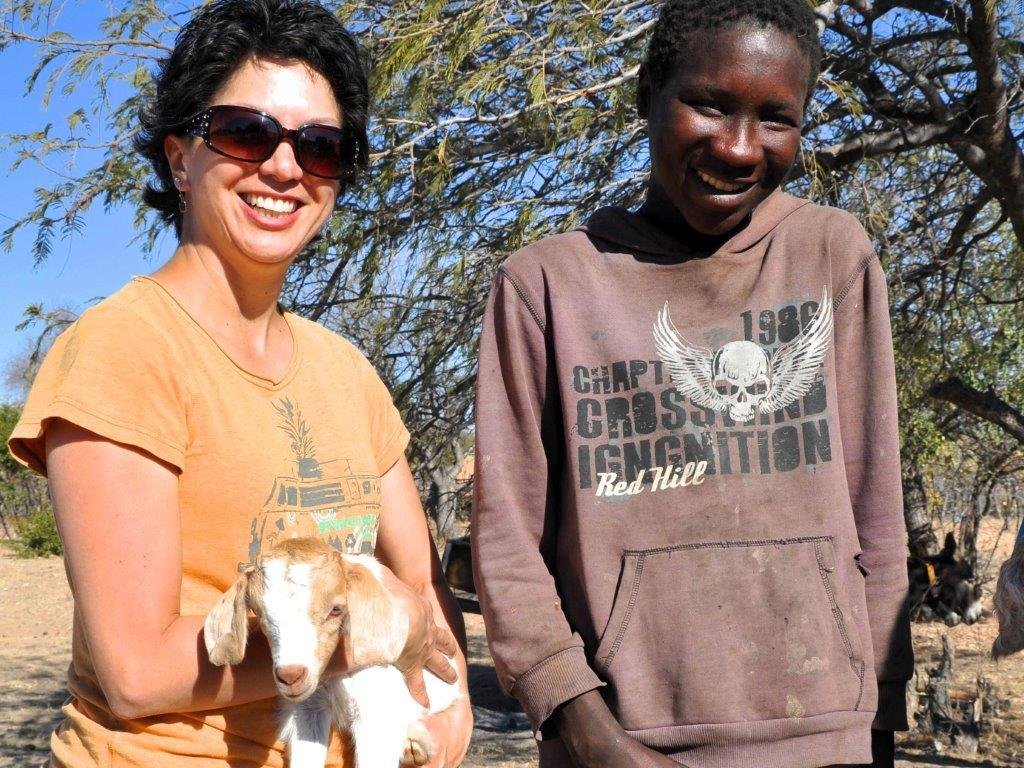By Qobolwake Khulalo | Project Manager
The AFCA livestock project continues to get stronger despite a number of challenges that have been encountered.
We are so excited to see that more than 75% of the chickens in the Biriri area have started laying eggs and it’s only a matter of time before we see the phenomenal growth. The rabbits in Biriri are a large breed which tends to take longer to start reproducing, but those rabbits are doing their best! What is exciting, though, is the fact that over 50% of the families who received rabbits have started recording pregnancy cases.
Considering the harsh conditions the animals have been exposed to this drought year, we are very happy about the performances. We must point out the record growth in the pig pilot section! This is the first time ever for us to be involved in a pig project and so far, the performance is AMAZING! One family had 10 pigglets born this season!
It is also worth noting that more than 95% of our beneficiaries are utilizing their small stock and are benefiting on a varying scale. Some are collecting manure and urine for their gardens and others are enjoying eggs, milk and rabbit meat. Eight families have already sold a rabbit in order to pay school fees and three families have eaten a rabbit as relish. This means they already gave two rabbits away to another family and have enough left over to be a small business. Good stuff!
CHALLENGES FACED AND THE WAY FORWARD
The major challenge this year is limited feed resources due to drought. The families are fully aware of the importance of dry season feed and are doing a lot to alleviate feed shortages and ensure the survival of their small stock. In all our sites, beneficiaries are supplementing their small stock by using legume residues which include ground nut hay and cow pea hay. Sorghum and maize residues are also used. The bulk of the beneficiaries are also using wild legumes and are also collecting acacia pods for their small stock. Those with chickens and guinea fowls are supplementing using sun flower seed and small grain. The orphan families are very excited that we are introducing fodder crops and they see it as a very effective way to mitigate the effects of dry season shortages that threaten the gains of various projects.
Diseases and parasites continue to be an issue in some areas, but it is worth noting that the regime that has been put together has made a great impact in countering these threats. Through training, beneficiaries are having sound understanding of basic small stock diseases, prevention and treatment. Orphan families have reported a lot of diseases during this dry season which could be due to poor nutrition and subsequent poor body condition. The most common diseases have been pulpy kidney, internal parasites, tick borne diseases and eye problems. But, we are happy to report that the orphan families did not lose many animals because of the vaccination and deworming programmes. Also, in cases of sickness, the families have improved a lot and are reporting such cases on time. The beneficiaries, through AFCA sponsored training workshops, are exposed to farm level disease management and are accessing relevant support services through the use of veterinary kits and trained veterinary assistants.
We are incredibly grateful and happy about this program and we are expecting to add a new site this year so we can help even more children. Thank you from all of us in Zimbabwe!
By Tanya Weaver | Executive Director
By Tanya Weaver | Executive Director
Project reports on GlobalGiving are posted directly to globalgiving.org by Project Leaders as they are completed, generally every 3-4 months. To protect the integrity of these documents, GlobalGiving does not alter them; therefore you may find some language or formatting issues.
If you donate to this project or have donated to this project, you can receive an email when this project posts a report. You can also subscribe for reports without donating.
Support this important cause by creating a personalized fundraising page.
Start a Fundraiser